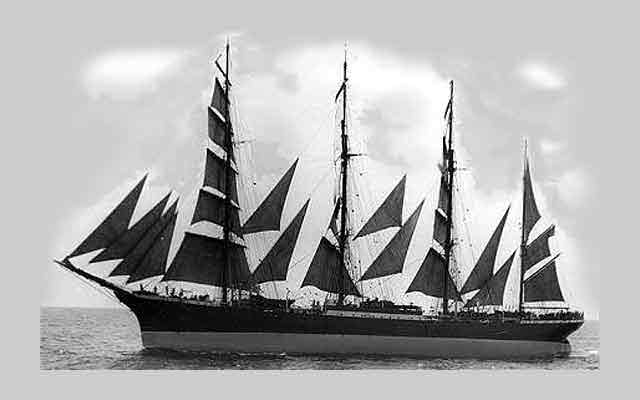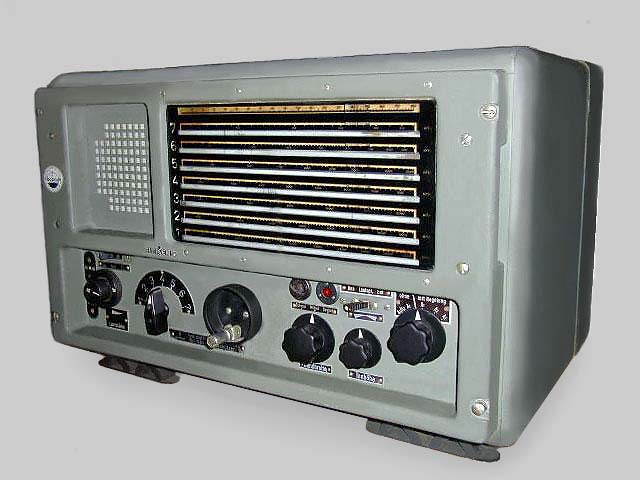
|
|
 |
| General Coverage Communications Receiver |
| Single Conversion Superheterodyne |
| 8 Tubes |
| Made in West Germany (1948) 1950 1955? |
| Specifications | |
| Coverage: | Seven Ranges 120 375 / 360 1150 kHz / 1.12 3.48 / 3.30 7.24 / 6.8 12.4 / 11.8 19.4 / 18.7 27.0 MHz / one fixed (emergency) channel 500 kHz |
| Modes: | AM/CW/MCW |
| Antenna Input: | HF 4/13 60 Ohms unbalanced or long wire |
| Sensitivity: | CW: <1 µV 6 dB S/N, AM: 5 20 µV (500 kHz) 10 dB S/N |
| Setting & Read out: | <10 kHz |
| Selectivity: | 0.25
/ 5.6 / 25 kHz 6 dB,
Formfactor -6/-60 dB: 1:5 at 5.6 kHz bandwidth |
| IF: | 1.086 and 1.185 kHz |
| IF Rejection: | Typical >60 dB except 1.120 1.150 kHz |
| Image Rejection: | >30 dB above 18.7 MHz |
| Audio Output: | 1.5 W/15 Ohms |
| Voltages: | 110 V AC/DC +/-10% 40 W and 220 V AC/DC +/-10% 60 W |
| Physical: | 550x350x385 mm, 25 kg |
| Accessories: | Dynamotor Rel 45 A 2 for 12 V DC |
| Features | |||
| - Headphone Jack (2) | - Speaker | - Speaker Switch | - Ext. Speaker Jack |
| - AF Filter 250 Hz wide | - BFO +/- 3 kHz | - AGC 0.1/0.5 sec. | - RF Gain |
| - Dial Lamps | - Spinner Knob | - 500 kHz Preset | |
| Circuit Complement | |
| Tubes : | UBF 11 (<17 C 8) RF Amp, UCH 11 (<19 D 8) 1st mixer and VFO, 2xUBF 11 (<17 C 8) IF Amp and AGC rectifier, UBF 11 (<17 C 8) BFO and detector, UCL 11 (>50 BM 8) AF Preamp and PA, UY 11 (>38 A 3) rectifier in PS, TE 30 (>0 A 3) antenna protector, pre-war German 8 pin steel tubes. |
| Tuning: | Three ganged capacitors in RF circuits. Tuning by a spinner knob 64:1; 500 kHz prest via IF bandwidth switch. 6 circuits. |
| Dials: | Linear dial 280 mm long with eight sections. If positions are registered in a logbook setting accuracy is about 5 kHz. |
| Comments |
| This receiver replaced the superregenerative receivers (one to three RF Amp, regenerative, two AF Amp) on many ships after WWII. It's quality stood behind the commercial superheterodynes which were produced for marine and navy applications ten years ago. So it was used mostly as a spare receiver after the midfifties. A little bit superior was competitor Telefunken E 103 Aw. The shape of the selectivity curve, cross modulation and image rejection dont fit today's needs. A heavy and mechanically stable radio for nostalgic collectors. |
| Variants |
| The E 66a is the first version (1948) of this receiver with only minor differences (spinner knob, AF Out impedance) to the later relabelled E 302. Note that the receivers E 303 E 307 (1953) and their prototypes E 300 and E 301 were electrically and mechanically quite different. |
| Additional Information |
The inside of the E 66a receiver.
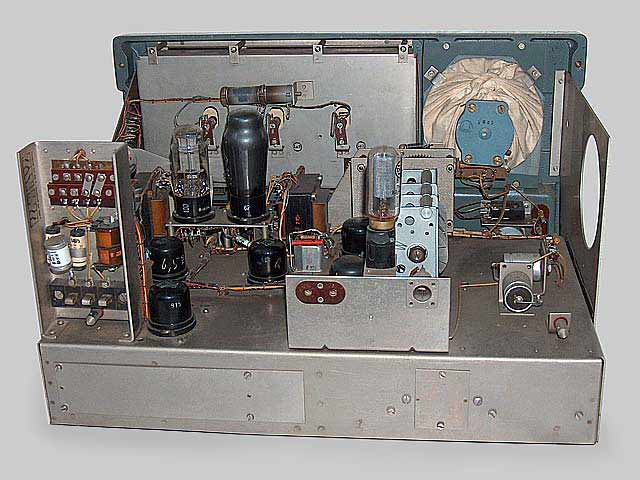
Simplified schematics of the E 66a (click to enlarge).
The types of tubes used in the E 66a receiver.
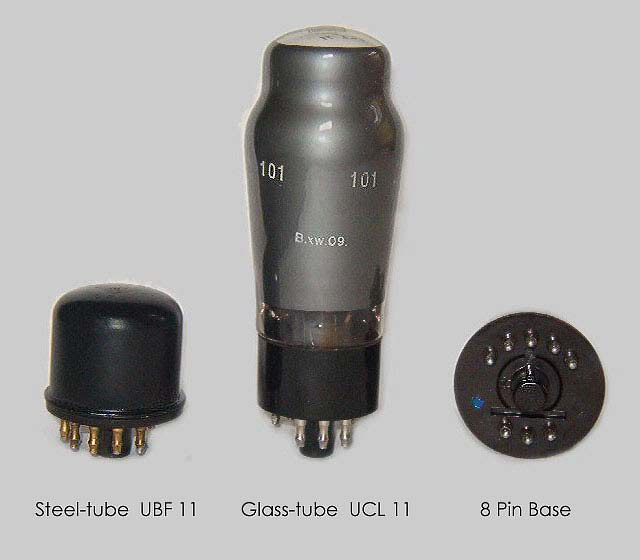
The following photo shows the E 66a in use on board of MS "Gutenfels" (Callsign DEEV).
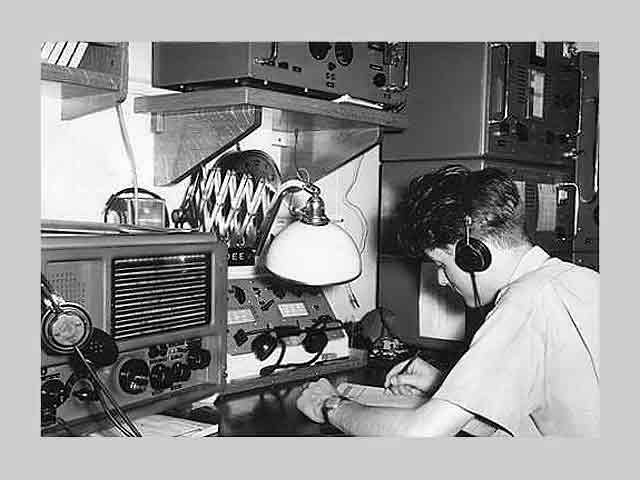
MS "Gutenfels".
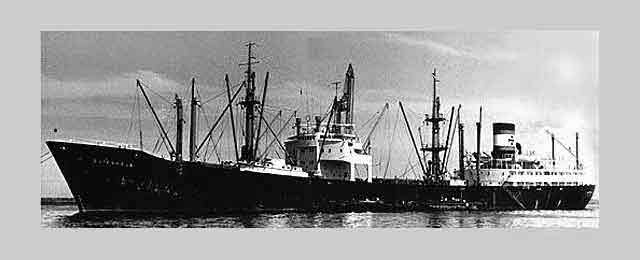
The E 66a also was in use on board the famous sailing ship "Pamir" (Callsign DKEV).
